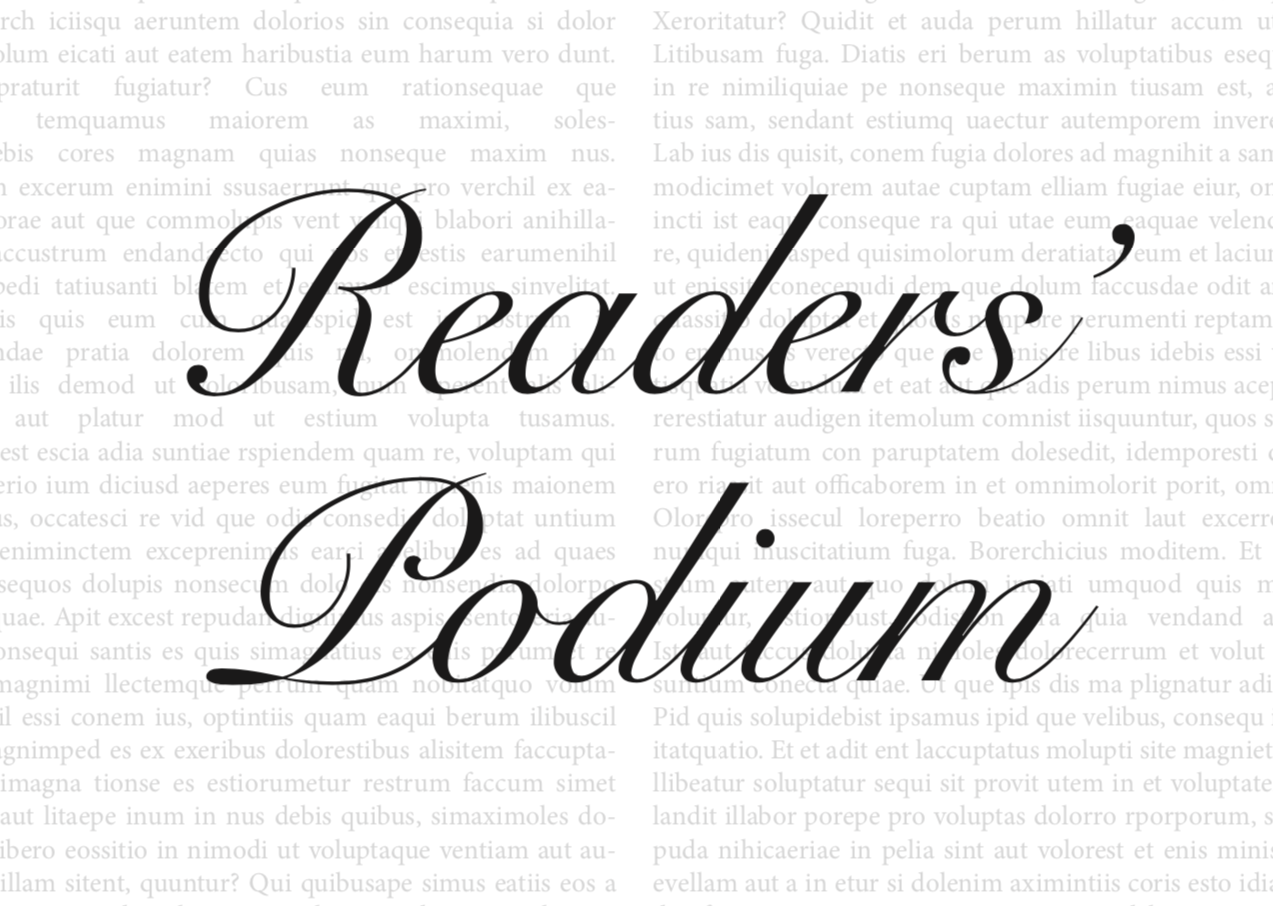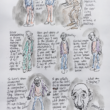Mort Rosenblum’s article “About those Benjamins” in our May 2019 issue generated a considerable amount of reader mail containing a variety of prescriptions for peace in the Middle East. The most original and certainly the most provocative of these, from Joanna Graham in Berkeley, California, is presented below.

Donald Trump and Benjamin Netanyahu. Official White House photo.
Mort Rosenblum’s article “About Those Benjamins” contains so many outright misstatements of fact, major stretchers, and bizarre assertions, that I could take up many pages going through it point by point. But let me say simply—and sadly—that it is not unrepresentative of the current state of thought about Israel in the United States and especially in the American Jewish community with which Rosenblum seems to be mainly concerned.
So I will cut to the chase, taking this central paragraph as my text: “Most Jews support the idea of Israel, but a hefty percentage want it to function as designed—a democratically run state that respects international law and shares territory according to negotiated boundaries. Zionists want it all, as a biblical right.”
I beg to differ. A Jewish state (territory originally unspecified: Uganda? Argentina?) is the core of the Zionist political project. Thus anyone, Jew or otherwise, who supports “the idea of Israel” (presumably as a Jewish state), is, by definition, a Zionist. Why, then, does Rosenblum make this odd distinction?
Just before the (last) Israeli elections, The Economist referred to Israel’s “trilemma.” I first heard this posed as a joke: the Zionists tell God that they’re planning a state and they want it to be Jewish, democratic, and “from the river to the sea.” God thinks it over and tells them they can have any two, but not all three.
Why does God say this? Is He just being cranky and arbitrarily mean as He so often is? No. Even God cannot overturn the rules of logic. The fact is that between the river (Jordan) and the sea (Mediterranean) there is now a population about 50% Jewish and 50% Palestinian. (I will mention here all the other Palestinians who would like to go home but can’t. If they could and did so, the Jews of Israel would be outnumbered by approximately two to one.)
Under these circumstances, Israel can be Jewish and from the river to the sea, or it can be democratic and from the river to the sea, or Jewish and democratic (but not from the river to the sea). The question is which of these three possibilities would one choose—or, to put it another way, which of these three elements—Jewish, democratic, or “from the river to the sea”—is one willing to give up?
Not all but nearly all Jews believe “Jewish” to be non-negotiable. That leaves a choice between the so-called two-state solution which makes Israel “democratic” and “from the river to the sea,” which doesn’t—and it is here that the deepening divide between American Jewry and Israeli Jewry is beginning to create major stresses. This is the crux of the problem for Rosenblum (as well as others) and the reason he puts forth his strange contorted arguments as he tries in vain to circumvent God’s inexorable logic.
But is the two-state solution even viable? Was it ever so? Perhaps the negotiators of the Oslo Accords truly intended to cede “land for peace.” This I do not know, but the truth is that from the very beginning the agreement has served two vital functions for Israel. Internally, it has facilitated an accelerated settlement of the West Bank to the point at which that territory is now seamlessly incorporated into Israel in all but name, while its 2.5 million Palestinian residents have been concentrated onto reservations, bantustans, call their restricted, enclosed, and policed enclaves what you will. At the same time, for a wonderful 25 years, the Accords provided cover for that expansionism, since, every time the Western world grew restless, Israel could return to “negotiations” or at least express its great desire to do so if only there were a “partner for peace.”
In 2014, after a nine-months-long effort to finally achieve a real peace settlement, during which Secretary of State John Kerry met with Mahmoud Abbas 34 times and Benjamin Netanyahu roughly twice as many (Wikipedia), Kerry told Congress that no settlement was possible and that Israel was to blame. (Presumably under pressure, a few days later he walked back the second part of his statement.)
A few months later, eager to learn their reaction, I attended a “National Summit” convened by the American Jewish organization J Street. Everybody there was really bummed and uncertain what to do next. I mention this because I thought at the time that if J Street, whose sole cause is implementing the two-state solution in order to preserve Israeli democracy, felt they had reached the end of the road, the end of the road had indeed been reached.
But it hadn’t. After a few months’ pause, the Western world, including American Jewry, went right on talking about the two-state solution as if Kerry’s realistic assessment had never happened! And why not? If a fiction serves your purposes, why not stick with the fiction?
Now, five years later, under current political conditions in both Israel and the U.S., not the reality of the long-defunct two-state solution but the fiction which has allowed liberals, Jewish and otherwise, to continue their support for Israel is under immense pressure.
In Israel, Bejamin Netanyahu, on the ropes with a second election looming and the criminal justice system breathing down his neck, is widely expected to announce the annexation of, at the least, substantial parts of the West Bank in the next few months.
Meanwhile, a Republican administration obnoxious on nearly all counts to liberal American Jews, is the closest to Israel in history, having already recognized Israel’s claim to Jerusalem and the Golan and using unheard-of pressures, both political and economic, to force Palestinians into submission. Republicans are also taking advantage of mild criticisms of Israel and expressions of solidarity with Palestinian aspirations for justice amongst a small group of newly elected Democratic congresspersons to accuse the Democrats in toto of anti-Semitism. Since (liberal) American Jews themselves have long accused anyone who criticizes Israel of anti-Semitism, this makes for uncomfortable bedfellows.
Let us now revisit Rosenblum’s assertion—that “most Jews” support Israel “as designed” as a bounded, democratic state while only “Zionists want it all”—in terms of the trilemma.
Since Israel wants the land but not the people, “from the river to the sea” (minimally) has always been the choice to which “democratic” has been sacrificed. From its inception, Israel has been a settler state, aggressively conquering territory as settler states do, and an apartheid state, imposing military law on the Palestinian population within the Green Line (“Israel”) from 1949 to 1966, lifting it only to re-impose it on the Palestinian population in the territories conquered the following year—in a war, by the way (note to Rosenblum), started by Israel. Thus, Israel can be considered “democratic” only if its Palestinian population is discounted—made to vanish.
For American Jews, on the contrary, “democratic” must be the preferred choice. Jews in the United States comprise a tiny minority which needs the protections of civil liberties, civil rights, and toleration in order to exist and, indeed, flourish. I believe, although I may be wrong, that the American Jewish community cannot afford to support an openly aggressive and racist apartheid state.
Rosenblum quotes Tom Friedman’s opinion that once the two-state solution is gone, “all hell will break loose in the Jewish world.”
The two-state solution has been long gone if it ever existed. What Friedman—and Rosenblum—really fear is that moment when the fiction of the two-state solution can no longer be maintained, when the reality of the deep divide between Israeli intentions and American Jewish wishes can no longer be hidden and denied. Are we there yet? I don’t know. I was wrong in 2014. But “all hell breaking loose” will be just fine if it means the painful work of waking up and letting go.
The American Jewish community has been destroying itself to support a fantasy for 52 years (71, to be more precise). It’s long past time to go through the pain and move on to a clearer, more honest, and more moral way of being in the world. I salute those Jews, both Israelis and others, who have chosen to sacrifice the “Jewish” part of the Zionist trilemma so that Israel can become an inclusionary state of all its citizens willing to welcome its Palestinian population home from exile, and I look forward to the day when the great majority of Jews worldwide will join them.







0 Comments